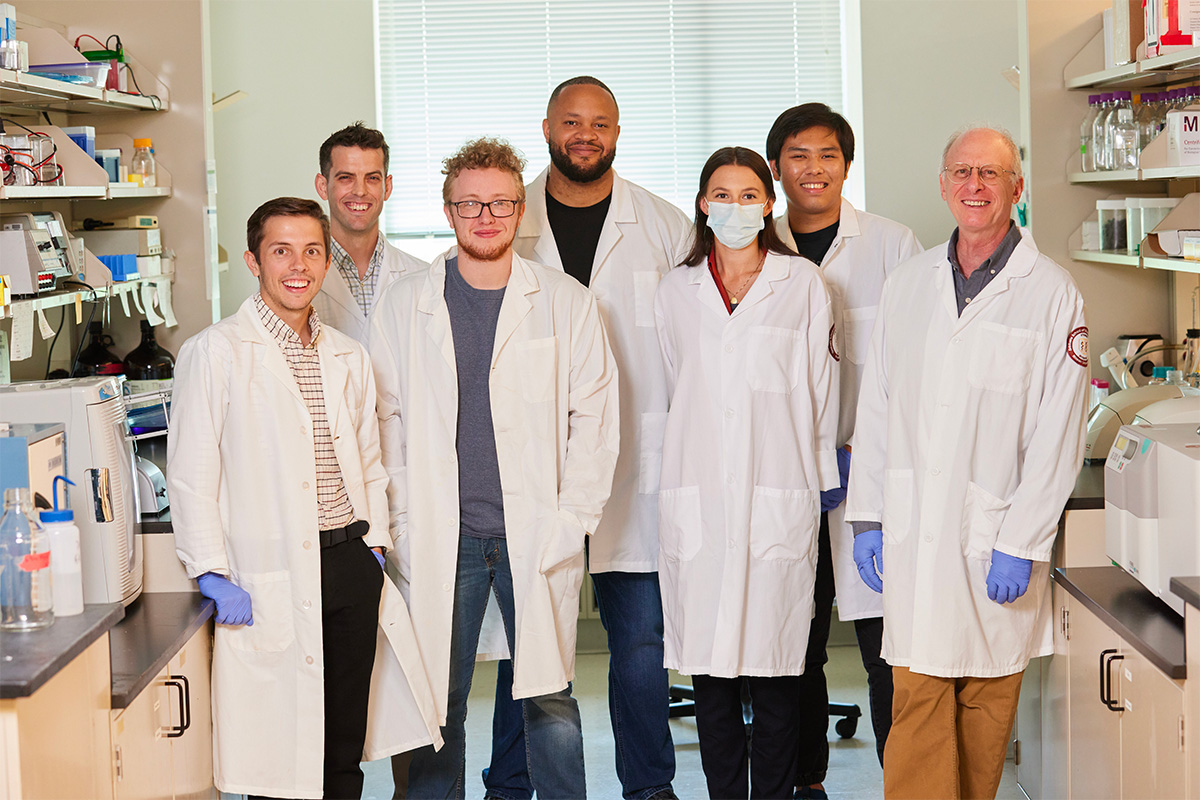Could a targeted therapy derived from a plant used medicinally in China for centuries offer the next breakthrough in cancer treatment? Dr. Gary Goldberg, associate professor in the Department of Molecular Biology at Rowan University School of Osteopathic Medicine (RowanSOM), is undertaking a human clinical trial to find out.
Goldberg and his team are collaborating with a group at the Rutgers New Jersey Medical School headed by Dr. Mahnaz Fatazadeh, professor at Rutgers School of Dental Medicine, to test a new drug candidate called MASL. This novel compound has been trademarked and licensed from Rowan University by Sentrimed, a company founded by Goldberg. MASL is derived from Maackia amurensis, a legume tree native to the Amur River valley, which flows through parts of Russia and China.
The MASL human trial marks a milestone for RowanSOM, Goldberg noted.
“Coming up with a new drug and taking it to a clinical trial is an excellent example of investigator-initiated research from bench to bedside,” said Goldberg. “It has taken a lot of collaboration and work to get to this point.”
The FDA considers MASL an investigational new drug.
“This is a unique Phase I trial,” Goldberg said. “This study integrates investigation of patient safety, along with potential efficacy and proof of concept mechanistic studies.”
Goldberg and his team began the ongoing human trial, involving 20 cancer patients, in fall 2020. While MASL has the potential to treat many kinds of cancer, this trial will test MASL’s effects on oral cancer.
“Oral cancer is a horrible disease,” Goldberg said. “It kills about as many people in this country as melanoma. In addition, survivors can suffer from decreased quality of life resulting from disfigurement and other consequences of surgery required for effective treatment.”
Since oral cancer causes lesions in the mouth, Goldberg and his team are administering MASL topically, with an oral lozenge, and systemically, as the compound enters the circulatory system after digestion.
Goldberg and his team aim to target cancer cells using specific proteins. Commonly used cancer treatments attack rapidly dividing cells, but not all of these cells are cancerous. This results in collateral damage, leading to a weakened immune system, as well as injury to digestive and other tissues.
MASL is different because, instead of harming all cells that divide rapidly—even normal and healthy ones—it targets the podoplanin (PDPN) protein receptor expressed on the surface of cancer cells.
Proteins are key in targeted cancer treatments, but thousands of proteins are turned on in the body of a cancer patient. Just a tiny fraction of these proteins are necessary for cancer to thrive.
“The most aggressive cancers tend to express high levels of PDPN,” Goldberg explained, including the vast majority of aggressive oral cancers. A normal cell may only have a little of this protein, but abnormal cells have a lot of it.
MASL’s potential goes beyond stopping the growth and spread of cancer cells, possibly even preventing precancerous lesions from turning malignant.
“The PDPN receptor offers exceptional opportunities as a powerful sentinel cancer biomarker and functionally relevant chemotherapeutic target,” Goldberg added.
Goldberg’s students have been heavily involved in developing knowledge of the basic science behind the drug’s efficacy, publishing findings in peer-reviewed journals and assisting directly with the human trial.
“I have seen firsthand the tumor-suppressive effects MASL has in cell culture and animal models,” said Stephanie Sheehan, a sixth-year Ph.D. student of cell and molecular biology who has assisted Goldberg in purifying, profiling and validating MASL in the lab for five years.
Learning about such cancer research drew seventh-year Ph.D. student Edward P. Retzbach to graduate school.
“As I learned more about MASL and the mechanisms behind how it worked, my interest grew,” Retzbach said. “For most preclinical and biomedical research, you don’t get to see the effects for a long time, so it is pretty great to actually see it happen in real time.”
Funding for Goldberg’s research has come from multiple organizations, including the National Institutes of Health, the Osteopathic Heritage Foundation, the N.J. Health Foundation, the Camden Health Research Initiative and the Northarvest Bean Growers Association, as well as Sentrimed and charitable donations.
